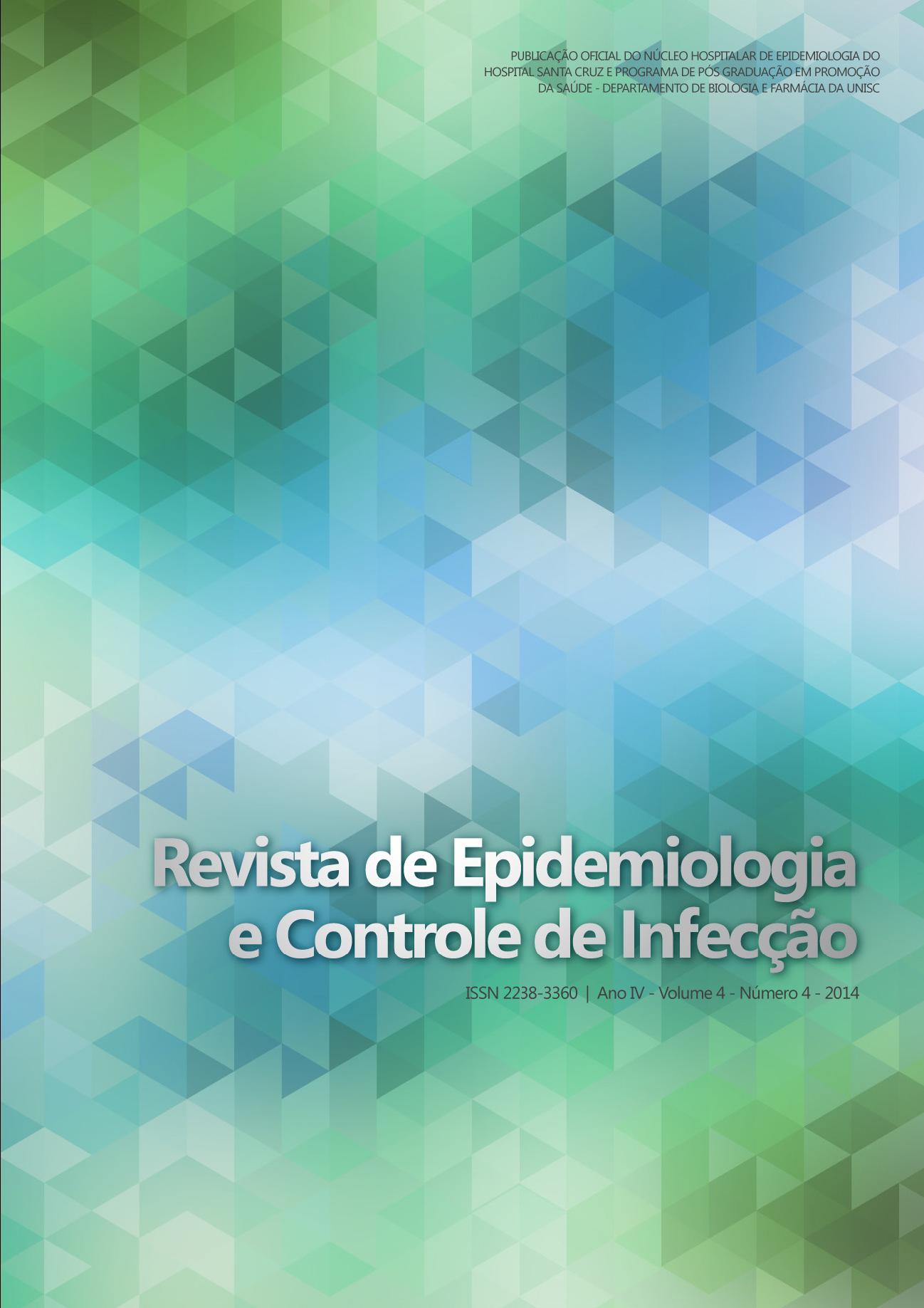Identification of microorganisms carried by vector mechanics in hospital environment in a city of the northwest region of the state of Rio Grande do Sul.
DOI:
https://doi.org/10.17058/reci.v4i4.4866Abstract
Backgound and Objectives: Arthropods are considered the most important vectors hospital, it has the ability to carry pathogenic microorganisms related to hospital infections. AIM: To identify microorganisms carried by ants in a hospital in Santo Angelo-RS. Methods: This was a cross-sectional study through a collection of 250 ants in hospitals from April to June 2013 collection was proposed by Tanaka et al (2007). They were collected aseptically with sterile clamps and conditioned in sterile test tubes. Each tube contained 5 ants, which corresponded to 50 samples analyzed. Within the tube were placed 5 mL of BHI broth, incubated at 37°C 24h. After each tube was subjected to depletion by seeding with calibrated loop (10uL) in Mac Conckey media agar and sheep blood agar 5%; The plates were incubated at 37 °C for 24 to 48 hours. The isolated microorganisms were identified according to microbiological methods.1 Results: Nine hospitals unit were observed, and four were found the presences of ants: Unit Pre/Post Surgical (SUS), maternity, Pre/Post surgical (Covenants) and administration unit. Among the wards studied, there was a greater presence of ants in the wing of the Pre-Post Surgical Unit (SUS). Four types of pathogens were isolated: Staphylococcus coagulase negative (SCN), Staphylococcus aureus, Acinetobacter baumannii and Candida albicans, the most frequent SCN (46.2%). Conclusion: This study confirmed the potential of ants as vectors of pathogenic microorganisms in a hospital in Santo Angelo, Brazil. KEYWORDS: Arthropod Vectors. Cross Infection. AntsDownloads
Downloads
Published
How to Cite
Issue
Section
License
The author must state that the paper is original (has not been published previously), not infringing any copyright or other ownership right involving third parties. Once the paper is submitted, the Journal reserves the right to make normative changes, such as spelling and grammar, in order to maintain the language standard, but respecting the author’s style. The published papers become ownership of RECI, considering that all the opinions expressed by the authors are their responsibility. Because we are an open access journal, we allow free use of articles in educational and scientific applications provided the source is cited under the Creative Commons CC-BY license.


